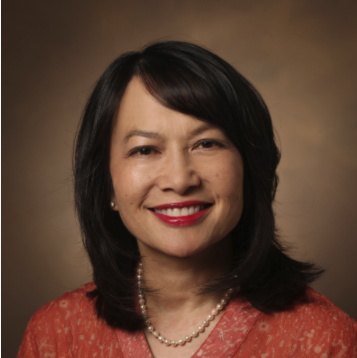A new initiative – the Young Adult Cancers Program at the Vanderbilt-Ingram Cancer Center – aims to help people diagnosed between 20 to 45 years of age as they navigate life with cancer.
“Young adults with cancer face very different obstacles from adolescents, who are still under the care of their parents, and from the older patient population, who for the most part have already established their careers and their families, or who may be retired,” said Cathy Eng, M.D., David H. Johnson Professor of Surgical and Medical Oncology at Vanderbilt and director of the new program.
The comprehensive program is believed to be one of three such initiatives in the country that is distinct from adolescent and adult programs and addresses unique needs and challenges of young adults with all cancers, Eng explained.
“These patients are often dealing with issues such as job security and consideration of family planning and fertility,” she said. “It’s mentally exhausting for a person to be diagnosed with cancer so young, when they’re faced with so many decisions early in life.”
Vanderbilt Provides Easy Access to Reliable Information
The Vanderbilt-Ingram Young Adult Cancers Program provides supportive services for all aspects of the patient’s cancer journey, from screening to diagnosis and throughout treatment. One goal of the program is to ensure young adult patients have easy access to reliable resources that will help them address all of their varied needs.
Informed by a multidisciplinary advisory board that includes physicians, health care specialists, patient advocates and young cancer patients, a wealth of resources are included on the program’s website. Categorized by topics that affect young adults with cancer, information covers reproductive health, sexuality, body image, mental health, parenting and financial guidance. In the future, Eng says the website will also include testimonials from patients and families about information that was helpful to them during their cancer journey.
“If we start early on, we can look at the benefits of treatment, the cost benefits in regard to their treatment and the psychosocial barriers.”
The website contains all evidence-based information, vetted by the advisory board, and patients will be directed to the website for more information throughout their care.
Research into Causes, Treatments
Research accompanying the Vanderbilt-Ingram Young Adult Cancers Program will explore biological aspects of young onset cancer. Colorectal cancer is one of the first malignancies to be explored. Eng says research will delve into three important questions: why these cancers are happening at such a young age; why survival is shorter in young adult patients; and whether these young patients should be receiving the same treatments as older patients with colorectal cancer.
Eng, who specializes in gastrointestinal cancer, says, “We don’t understand why survival in young adult patients with colorectal cancer is shorter than older patients. From a GI perspective, there’s something unique about these patients.”
With the development of the Young Adult Cancers Program, Vanderbilt is also building a young adult database to capture information about this patient population. For those who opt in, investigators will utilize residual tissue captured in biopsies as well as blood and stool specimens for genetic sequencing and microbial profiling.
“This is a unique opportunity to demonstrate what is capable of being done … to help these individuals who have not been getting the help they need.”
“At the end of the day, we’ll need a large number of these young patients to capture additional information, but if we start early on, we can look at the benefits of treatment, the cost benefits in regard to their treatment and the psychosocial barriers our young adult patients are facing,” Eng said. “It’s an amazing opportunity to look at the young adult patient from multiple facets.”
A New Era of Tailored Support
Joining Eng in developing the program are her co-directors, Vanderbilt investigators Elizabeth Davis, M.D., an assistant professor of medicine who specializes in the treatment of patients with bone and soft tissue sarcoma, and Michael Byrne, D.O., an assistant professor of medicine whose specialty is hematologic malignancies and bone marrow transplant.
“This is a unique opportunity to demonstrate what is capable of being done to support our young patients, to help these individuals who have not been getting the help they need,” Eng said.




